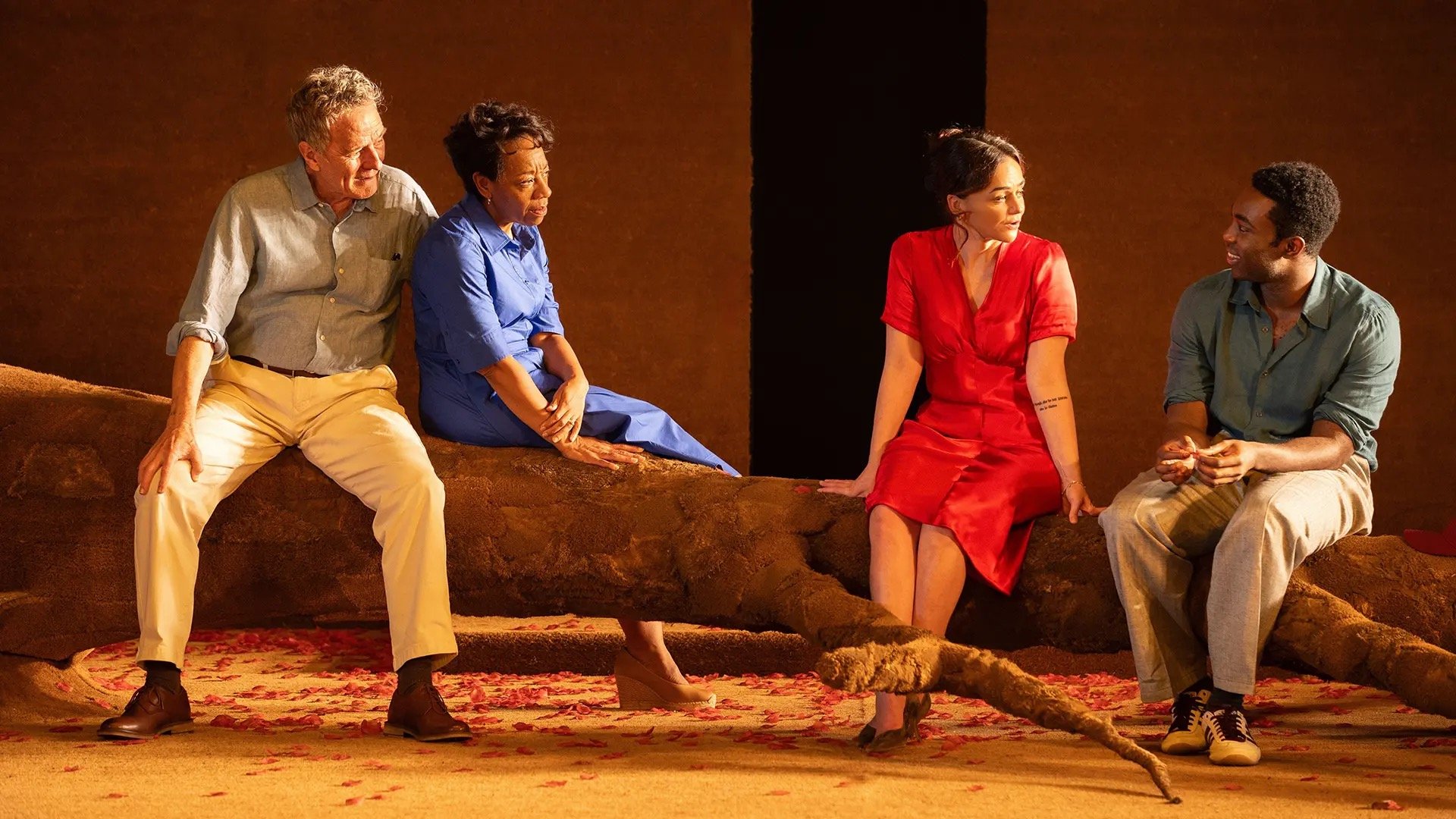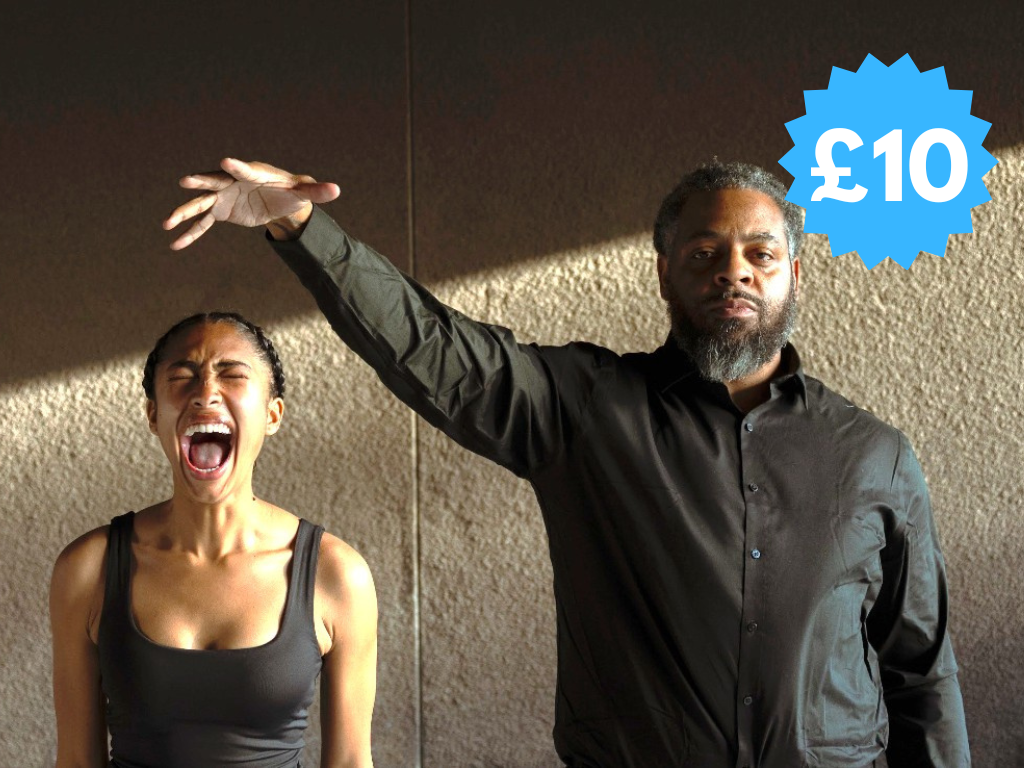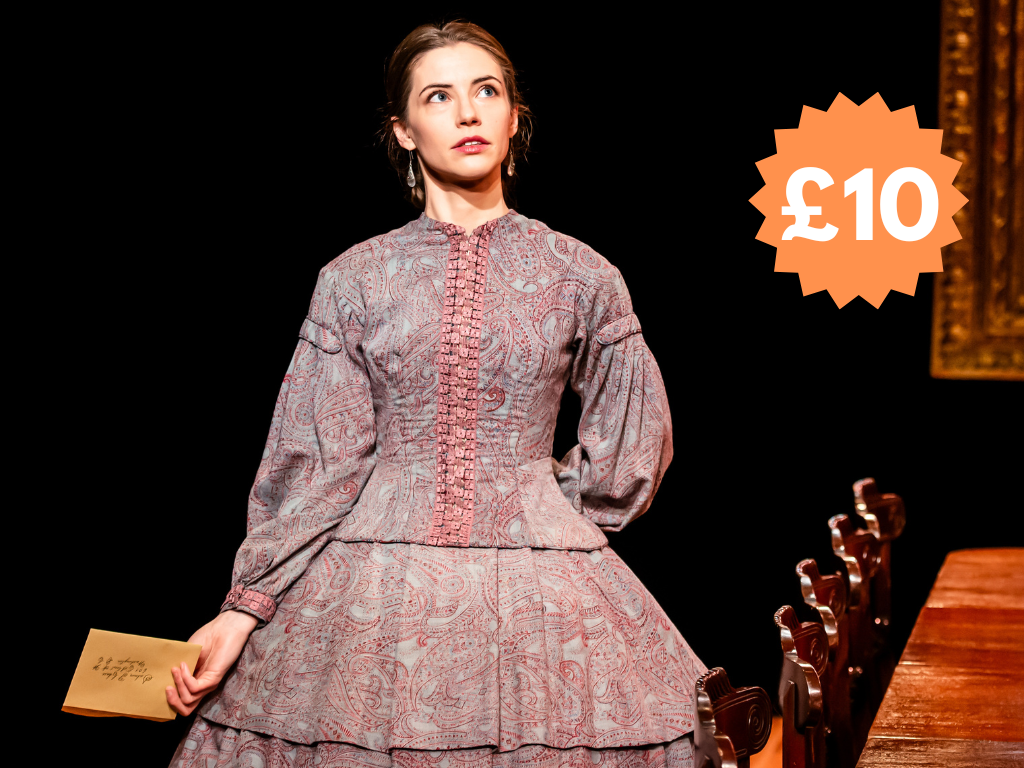“All My Sons”
My Theatre Confidences 🤫
“All My Sons” by Arthur Miller
Wyndham's Theatre until 7 March
At one point I realised I was crying, and then trying—uselessly—to pull myself back together. I couldn’t. Something in this production kept pressing on the part of me that still believes morality has weight. I surrendered to it, to the tragic recognition of how capitalism shapes what we’re even allowed to call “good.”
The story unfolds in the Keller family’s backyard after World War II, where the absence of their missing son, Larry, hangs over everything. Years earlier, Joe Keller approved the shipment of faulty airplane parts that killed twenty-one pilots and let his business partner take the blame. Larry’s death is one of the many silent consequences of that decision. Now, as Chris hopes to build a future with Ann (the daughter of that imprisoned partner) the truth begins to swell inside the family’s carefully maintained normality until it breaks, exposing the full cost of Joe’s choice.
Chris Keller understands the truth and knows exactly what it demands of him. His clarity is sharp and painful, and constantly bouncing off the thick armour of privilege around him. Paapa Essiedu and Bryan Cranston play father and son with a tenderness that complicates the entire moral terrain.
Their affection brings the ethical tension into focus, turning every small gesture into a reminder of what’s at stake. It’s rare to watch two men onstage hold so much love and so much ideological fracture at once. That softness makes the political pain feel closer to the bone. Love can hold you, but it won’t insulate you from the world you inherit.
Watching this family choose self-protection over responsibility, I kept thinking about how wealth behaves now; not as a number, but as a worldview. My mind went to the newly elected mayor of New York City, someone who’s managed to stir a real, grounded sense of possibility in people like me who are exhausted by managed decline and billionaire exceptionalism.
Zohran Mamdani talks often about how the richest are allowed to position their interests as universal; the Kellers feel like the mid-century prologue to that mentality. Joe Keller’s justification that “there’s nothing bigger than the family” is the same logic that lets today’s ultra-rich damage the world and still tweet about rockets and innovation. A small circle of loyalty, defended fiercely, at the expense of the larger human circle they pretend not to see.
We’ve watched that logic play out in the recent UK’s COVID inquiry: negligence disguised as inevitability, blame passed around like paperwork, as if real lives weren’t in the balance. Miller would recognise the pattern immediately.
What this production shows with such precision is that harm is rarely committed by villains. It’s committed by people who believe they’re simply protecting what’s theirs. When Chris presses his father to understand the scale of what he’s done, “There’s a universe of people outside”, the line becomes the production’s pulse. It insists that moral responsibility is spatial; it measures how far outward you allow your care to reach. The beautiful, almost metaphysical set design and soundscape capture this with the energy of a thriller, not because of suspense but because of recognition.
Hannah Arendt—one of the sharpest political thinkers of the twentieth century, who spent her life examining how power distorts our sense of responsibility—wrote that moral collapse begins when we narrow the field of people whose suffering counts. Watching the Kellers, you see that boundary shrink in real time: the home turning into a fortress, the community fading to irrelevance, twenty-one dead pilots becoming an unfortunate footnote. This production let us feel how tragedy grows out of decisions made in offices and boardrooms. It’s the most frightening kind of inevitability: the invented kind.
And what this production restores is something simple and rarely delivered: the sense that morality is not an aesthetic, not a slogan. It’s a boundary. And the only real question is how wide you’re willing to draw it.
Paapa Essiedu is extraordinary, making integrity look like a physical force. You feel him fighting for a version of the world so many of us in the audience desperately want: one where decency isn’t swallowed by profit. He holds loyalty and disillusionment, affection and revulsion, all at once…and you believe every moment.
A quick note on my reflections on the shows I see:
Let’s be clear: you won’t find the typical “review” on my page. I don’t buy into the so-called objectivity of mainstream theatre criticism; it’s outdated and protects toxic power structures while sidelining marginalised voices. I’m not objective, and I’m proud of it. I’ve got my own lenses. My reflections are personal, shaped by my lived experiences and values. I share what moved me, what challenged me, and what’s worth talking about; not ticking boxes or handing out stars.
And no, I’m not going to describe the whole plot or list every onstage moment; I find that mind-numbingly boring, both to write and to read.
Giuliano x
My Way of Looking at Theatre
You know, the more I think about it, the clearer it becomes that traditional theatre criticism has often been a tool for maintaining existing power structures.
It’s time to drop the privileged fancy talk around theatre and break free from star ratings.





